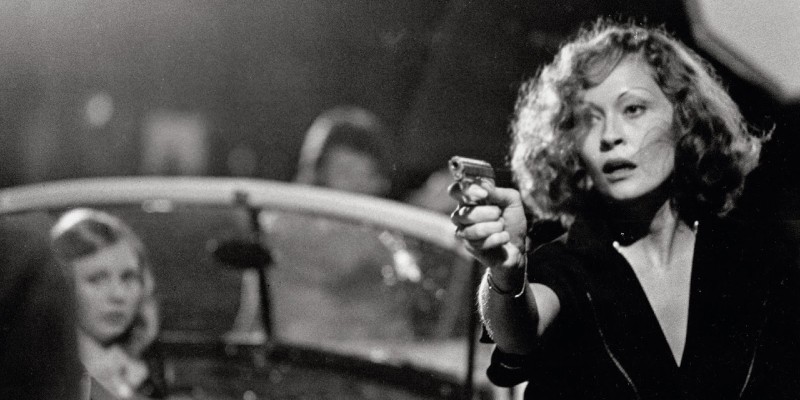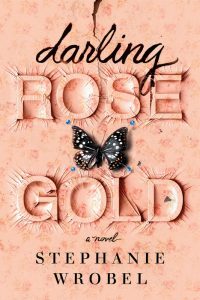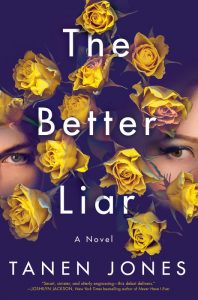Hardboiled fiction of the twenties, thirties and forties and classic film noir of the forties and fifties mostly feature a particular kind of guy. You know him. Think of Raymond Chandler’s private dick, Philip Marlowe, in The Big Sleep, The Long Goodbye and Farewell My Lovely. In film, we see him through tilted camera angles, contrasting light and shadows, unbalanced framing. The world as he sees it is not quite right. Author Megan Abbott calls him “the solitary white man, hard-bitten, street-savvy, but very much alone amid the chaotic din of the modern city.” He’s a loner hero, a tough-talker, vulnerable and sensitive enough to be infected by the crime all around him. He’s a conflicted anti-hero. His good guy suit chafes a bit about the neck.
His world makes him this way—World War I, the Great Depression, then World War II—with so many men financially and physically wounded, unmanned by injury and the loss of economic power. Things no longer make sense. He sees trusted institutions as corrupt now—church, government, police, elections, even family. Women, who previously posed no threat to his standing, become snakes, medusas, sirens—thieving, poisonous, treasonous, emasculating to him, usurping male control. The femme fatale.
Noir cycles back when cultural conditions are right, shifting in its particulars according to the zeitgest. Filmmakers returned to it in the seventies, in the wake of Watergate and Vietnam, when nothing was clear, nothing right, nothing good seemed possible. It was neo-noir. Think of Robert Towne’s 1974 film, the prime example, Chinatown. In maybe the best-remembered, “My sister . . . My daughter” scene, tough guy private dick, Jake Gittes, slaps femme fatale Evelyn Mulwray into confessing that her daughter is also her sister, that she was raped by her father. Gittes finds out that nothing is one thing or the other. The damsel cannot be saved.
Post-fifties neo-noir films are often sinister, arty crime dramas, with a twisted, dark wit. Though now the crime may not be literal but moral, philosophical. Think of Blade Runner, Drive, Zodiac, Klute, Body Heat, The Grifters, Devil in a Blue Dress, Mulholland Drive, Brick, Collateral, Hell or High Water, Gone Girl.
We’re in a chaotic, anxious, time right now, a global pandemic, riots, murder. We’re unmoored by disinformation, fake news, a simmering planet, children in cages, claims of rigged elections, threats of marauding others, the squashing of non-white, non-male political power, #metoo. The loner white male feels under attack, among other things, susceptible to the conniving, contagious energy of a femme fatale. Author Halley Sutton says, “There’s something individual and hungry driving her and it makes her dangerous. …She’s a dame in search of her own destiny.” That’s her job alongside a conventional noir male protagonist. In her sickening self-interest, she tries to take him down with her sexual wiles. She’s out for herself. For her destiny. And he falls for it in an almost biological imperative to make the same mistakes, again and again. The inevitability of it—he knows the dame’s no good—but he can’t resist her. She’s out for herself.
But what if the dick is the dame? What if this grab-‘em-by-the-pussy world provokes more noir stories centered instead on her, not him, centered on her self-interest, her self-preservation and survival, as something for the reader to root for, pitted against her anxiety about her place in an unpredictable, oppressive world that threatens her very sense of self? What if #metoo culture makes her the protagonist?
Several recent woman-penned noir novels do this, remaking the familiar formulation to explore competing drives to become oneself, who one is, when the world wants to make you something else. Here are five to consider.

Anita Felicelli, Chimerica (WTAW) September 2019. Within a mashed-up noir and fabulist world, Maya’s losing everything—her husband and children, her work lover, and her job—for ambiguous, untenable reasons. She thinks she can fix it all by winning the intellectual property case that seems at the heart of it—representing a talking lemur who’s escaped a work of art, landing on her couch like a sly, Shakespearean fool, checking her delusions. Will she solve the legal riddle? Regain her family, her work again? Will she accept the worldly bargain to give up some of it to get the rest?
Emily Beyda, The Body Double (Doubleday) March 2020. A nameless narrator, a nobody, a movie usher, is plucked from oblivion and hired to recreate herself as a body double for a celebrity who’s had a breakdown. She immerses herself in the minutia of the celebrity’s surface life to play her, to become her, to take her place. But as she takes her charade into the world, she starts to ask the real questions. What caused the celebrity’s collapse? Will she come back? What becomes of the person she was before? Were either of them ever real to begin with?
Stephanie Wrobel, Darling Rose Gold (Berkley) March 2020. Rose Gold’s mother has been in prison five years, convicted of child abuse via Munchausen syndrome by proxy. When she’s released, she moves back in with Rose Gold, saying she forgives her daughter for turning her in. Rose Gold is less forgiving. Wrobel explores how Rose Gold will use what remains of a frayed mother-daughter bond, posing the dark questions at the heart of noir. Can anyone be trusted? Aren’t we all alone in the end, and always?
Tanen Jones, The Better Liar (Ballantine) January 2020. In another false-identity noir, in order to meet the terms that will allow her to claim her inheritance, a young woman hires a drifter to play her long-missing sister. But when their true identities begin to bubble up, more than the charade is risked. To whom are we connected? When does a tie become a rope? Who are we to each other?
Silvia Moreno-Garcia, Untamed Shore (Agora) 2/2020. In Baja, a young woman living in a boring fishing village longs for a different world—Hollywood. When a trio of American tourists settle in for the summer, she enjoys the escape from her prosaic life, until one of the tourists is killed and she’s the others’ alibi, testing her naïve willingness to trust, opening her eyes to darkness, the price of entry to what had seemed at first a bright glittering world. What price knowledge?
*






















